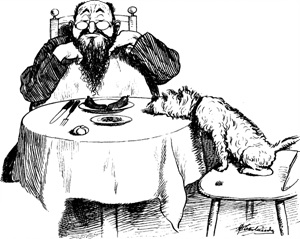 영어토론방 영어토론방 | Home>영어토론방 |
Culture Dog-eating controversy
페이지 정보

본문
 It is strange that people who are so sensitive about reports on mad cow and even bird flu diseases, are rather indifferent to the perennial controversy over dog meat, largely related to its sanitary status as much as morality. A government measure to "sanitize and rationalize" the supply of dog meat has again generated a hot public debate on the desirability of the dog-eating culture but it would not significantly affect the consumption of "gaegogi" here.
It is strange that people who are so sensitive about reports on mad cow and even bird flu diseases, are rather indifferent to the perennial controversy over dog meat, largely related to its sanitary status as much as morality. A government measure to "sanitize and rationalize" the supply of dog meat has again generated a hot public debate on the desirability of the dog-eating culture but it would not significantly affect the consumption of "gaegogi" here. The government step to prohibit cruel ways of slaughtering dogs and to strengthen hygienic overseeing of dog restaurants through the revision of pertinent statutes is definitely not an effort to discourage eating dog meat, as animal protection activists argue. On the contrary, it could boost the business at those restaurants by allowing people to enjoy dog soup and other canine specialties with less moral compunction and hygienic apprehension.
Dog meat is now the fourth most consumed meat in Korea after pig, cow and chicken, although it is not sold in ordinary supermarkets but is supplied to restaurants through special channels. Official statistics on dog meat circulation have not been updated since the late 1990s but available figures show that some 9,000 tons are being served at about 6,500 establishments across the country annually. This does not include the many dogs that are killed and consumed privately at dog-eating parties in the countryside and the large volume of dog meat that turns into a sort of "extract" considered as a health medicine cum food.
Defenders insist that the dogs eaten by Koreans are different from the kinds raised as pets, as different as cats are from dogs, that Koreans love pet dogs as much as any other people elsewhere in the world, proven by the numerous dog hospitals and dog cafes in cities, and that criticizing dog-eating custom here is nothing but "cultural imperialism" which tends to overlook even queerer culinary practices in Western countries, and so on. They may be right in these arguments, but we need to give some thought if it is really so desirable to keep dog soup as one of the high-priced items on restaurant menus in these times when we have already shed many old practices to live in the modern global community.
It is obvious that the younger people, who regard dogs more as their friends than as a source of food, have much less appetite for dog cuisine than the health-conscious older generation. So it can be expected that the passage of time will gradually push dog menus out of the Korean eating culture. However, more conscientious and active efforts aside from revising a few clauses in existing acts are called for at the government level to lead the people away from the culinary habit that hurts the image of Korea. That our bureaucrats and legislators include quite a few dog eaters should not deter such official endeavors.
**For your tips**
converse a recognition:인식을 전환하다.
cultural difference:문화적 차이
Question
1. Do you enjoy dog meat?, or have you ever tried it before?
2. What do you think about those who still don't understand our dog-eating culture?
3. Do you think dog meat is Korea's traditional food?
4. How can we set and spread a naive perspective on dog meat to the world?
이 글은「대학연합영어토론동아리」www.pioneerclub.com에서 제공하는 영어토론 정보입니다.
댓글목록
등록된 댓글이 없습니다.

